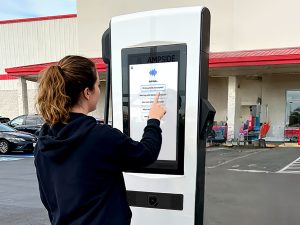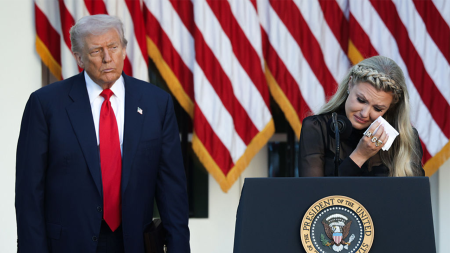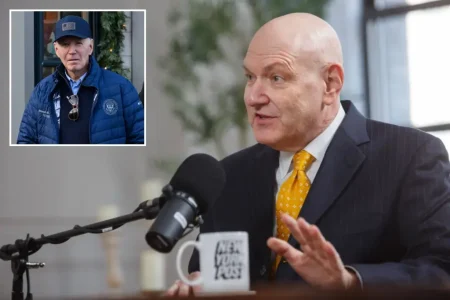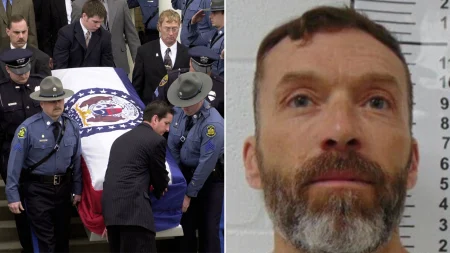Netanyahu’s Testimony, Antisemitic Incidents, and the Geopolitical Landscape
Israeli Prime Minister Benjamin Netanyahu’s corruption trial took a dramatic turn as he recounted his disagreements with former President Barack Obama regarding Iran and the Palestinian state. Netanyahu testified that Obama viewed Iran as an opportunity rather than a threat and prioritized the establishment of a Palestinian state based on the 1967 borders, policies that starkly contrasted with Netanyahu’s own convictions. This clash of perspectives highlights the complex relationship between the United States and Israel during the Obama administration, particularly concerning Middle East policy. Netanyahu’s testimony provides a glimpse into the behind-the-scenes tensions and differing strategic assessments that shaped the interactions between the two leaders. This context is crucial for understanding the broader geopolitical dynamics of the period and the ongoing debate surrounding the Iran nuclear deal and the Israeli-Palestinian conflict.
Simultaneously, a wave of antisemitic incidents worldwide has intensified concerns about the rise of anti-Jewish prejudice. A devastating arson attack on the Adass Israel Synagogue in Melbourne, Australia, is under investigation as a potential act of terrorism, underscoring the growing threat faced by Jewish communities globally. This incident follows a pattern of antisemitic attacks and vandalism targeting Jewish institutions, raising alarms about the need for increased security and vigilance. The attack on the Melbourne synagogue has resonated internationally, prompting expressions of solidarity and calls for action to combat antisemitism.
Further fueling concerns about rising antisemitism, students at Columbia University distributed an antisemitic newspaper titled "The Columbia Intifada," prompting condemnation from New York lawmaker Rep. Mike Lawler. The newspaper’s articles, published anonymously, espoused anti-Zionist views and questioned the legitimacy of a two-state solution. Lawler’s call for consequences, including potential loss of federal funding and tax-exempt status for Columbia University, reflects the growing frustration over perceived tolerance of antisemitism on college campuses. This incident raises broader questions about the boundaries of free speech and the responsibility of educational institutions to address hate speech.
Adding to the complex picture, boxing legend Floyd Mayweather encountered a potentially hostile situation in London. Reports suggest that he and his entourage were targeted by an angry mob, allegedly due to his support for Israel. Mayweather, who has a foundation supporting Israeli orphans, downplayed the incident, stating that his security team handled the situation. This incident underscores the potential for public figures to become targets of hostility due to their political stances, particularly concerning sensitive issues like the Israeli-Palestinian conflict. It also highlights the challenges of navigating public spaces while expressing support for controversial causes.
Meanwhile, an anti-Israel convention hosted by American Muslims for Palestine (AMP) in a Chicago suburb aimed to educate college students on how to make their campuses "Palestinian." AMP, a nonprofit currently under congressional investigation for alleged ties to Hamas, featured speakers such as Nihad Awad, executive director of the Council on American-Islamic Relations (CAIR). Awad’s previous comments expressing satisfaction with the October 7 terrorist attack sparked outrage and further fueled concerns about the organization’s agenda. The convention and Awad’s presence raise questions about the potential for anti-Israel activism to cross the line into support for terrorism.
Amidst these concerning developments, Moshe Emilio Lavi, whose brother-in-law Omri Miran was taken hostage by Hamas on October 7, expressed renewed hope following Donald Trump’s election victory. Lavi believes that Trump’s administration will prioritize the release of the hostages and adopt a more assertive stance against Hamas. This perspective reflects the diverse opinions within the Jewish community regarding the best approach to dealing with Hamas and the ongoing hostage crisis.
The convergence of these events – Netanyahu’s testimony, the antisemitic incidents, and the political landscape – underscores the intricate and volatile nature of the current global situation. The rise of antisemitism, coupled with geopolitical tensions and the ongoing Israeli-Palestinian conflict, creates a complex web of challenges requiring careful consideration and nuanced responses. Addressing these issues requires a multifaceted approach that encompasses diplomacy, security measures, education, and interfaith dialogue. It also necessitates a firm commitment to upholding fundamental values such as freedom of speech while simultaneously combating hate speech and intolerance. The path forward requires collaboration among governments, civil society organizations, and individuals to foster a more inclusive and peaceful world.










